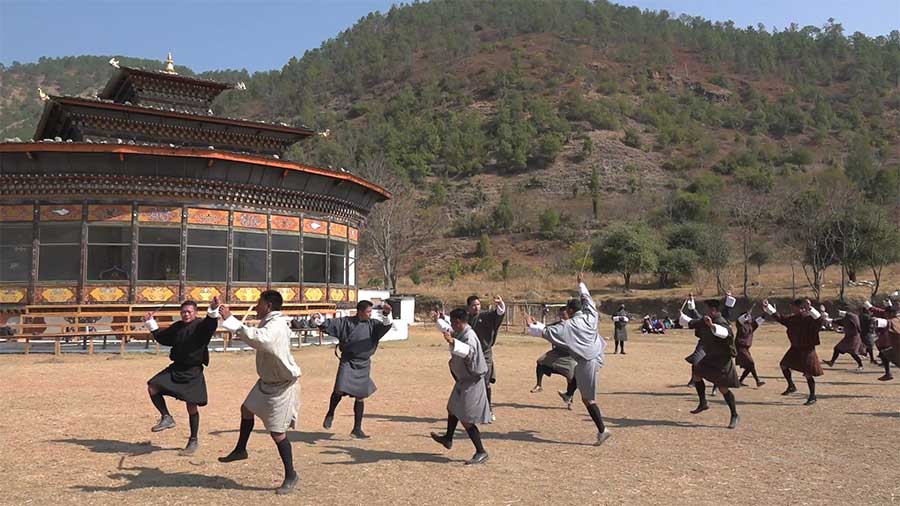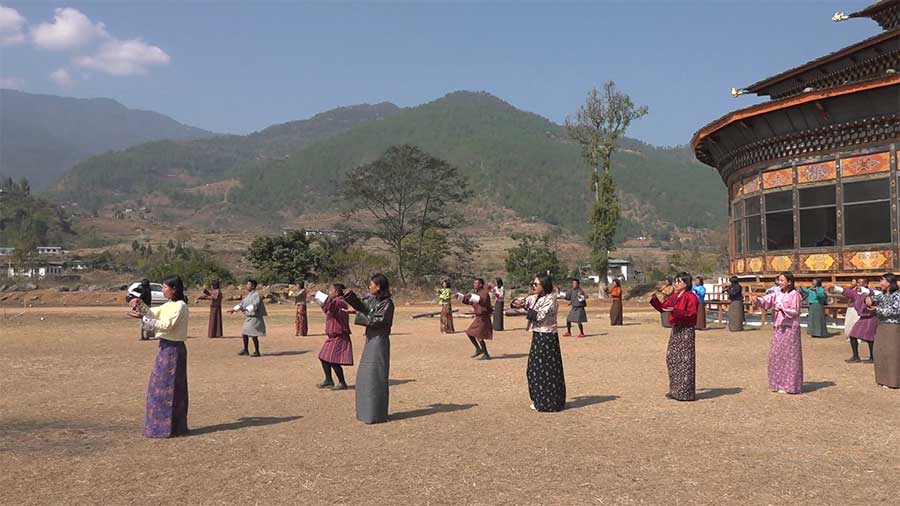
The people in Punakha are excited about the upcoming tshechu, which is just around the corner. The tshechu is finally open to the public after performing behind closed doors for two years amid the pandemic. The preparation for the festival is in full swing. More than 60 dzongkhag dancers and 30 monks are participating in the festival.
 The three-day Punakha Tshechu will be held in the first week of next month at the Punakha Dzong.
The three-day Punakha Tshechu will be held in the first week of next month at the Punakha Dzong.
It has been more than two weeks since the dzongkhag dancers and monks have been practising for the festival at the Thangzona ground above the Punakha dzong.
From the Zhabdrung, Ngawang Namgyal’s arrival in the country to the final battle of the Tibetan invasion, people will get to witness six different programmes from the Zhabdrung’s life.
“The Zhabdrung, Ngawang Namgyal initially instituted the monk body in Punakha. Thereafter in 1638, he built the Wangdue Phodrang. So, the reason for performing these special programmes of Zhabdrung during Punakha Tshechu is because he instituted the monk body here, which became the main Zhung Dratshang. Moreover, Punakha Dzong is the residence of the Zhabdrung, Ngawang Namgyal,” said Namgay Wangchuk, the Machhen Zimpon of the Punakha Dzong.
A group of artists from the Royal Academy of Performing Arts in Thimphu is training the dancers.
“The performance of Zhabdrung’s special programme in Punakha Tshechu began in 2007. But the performances were brief initially. We did not have the programme for the Punakha Dzong construction. It was performed directly from the battle of the Tibetan invasion. However, more programmes from Zhabdrung’s life were added in 2012,” said Penjor, the Trainer from the Royal Academy of Performing Arts.
The Zhabdrung, Ngawang Namgyel, is considered to be the reincarnation of Kuenkhen Pema Karpo successfully united the country and established the Drukpa Kagyu lineage of Buddhism across Bhutan. He also defined the national dress and instituted tshechu festivals.
“We should not witness tshechu as a mere festival but watch it with full dedication and understanding. It is a programme of only about two to three hours but if watched with full consciousness, it has a spiritual power to cleanse oneself of bad deeds. We will also be able to accumulate good merits and get blessed, enlightened, and purified by observing the dances,” added the Machhen Zimpon.
Punakha Tshechu was instituted in 2005. Prior to that, there was only Punakha Dromchoe, which features sacred mask dances.
Changa Dorji, Punakha
Edited by Sonam Pem









